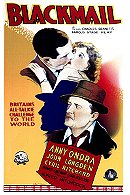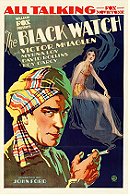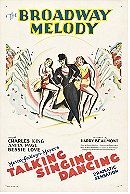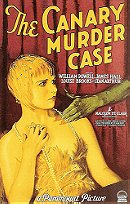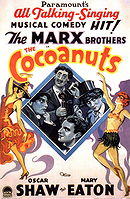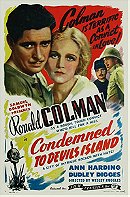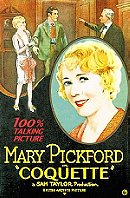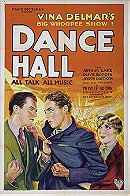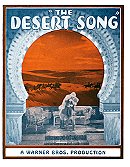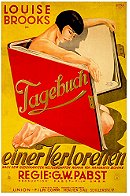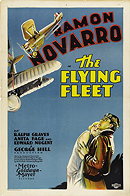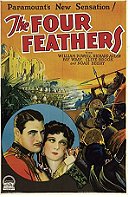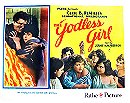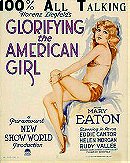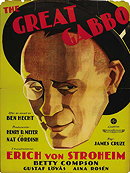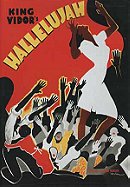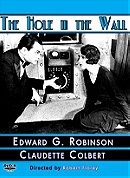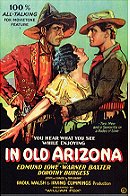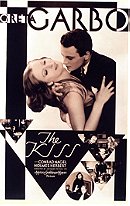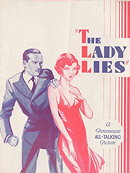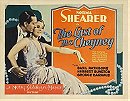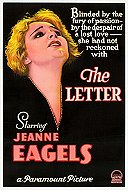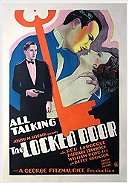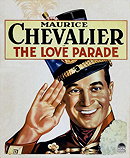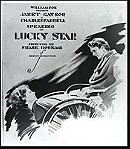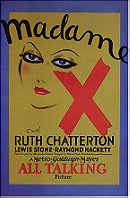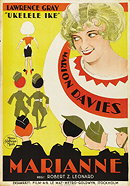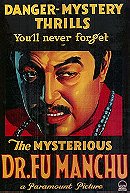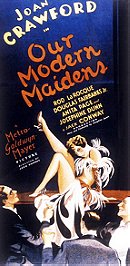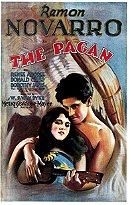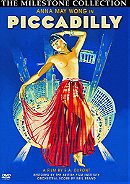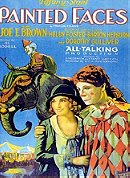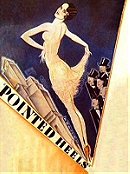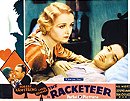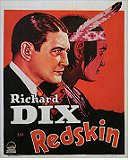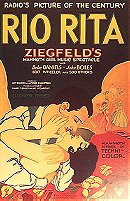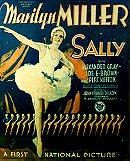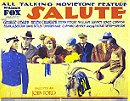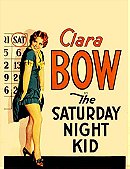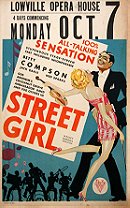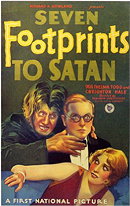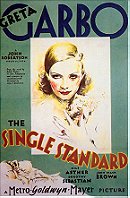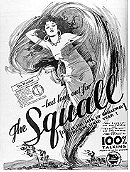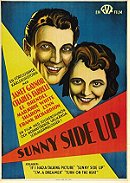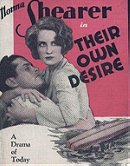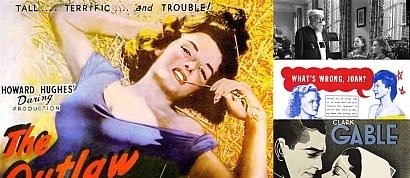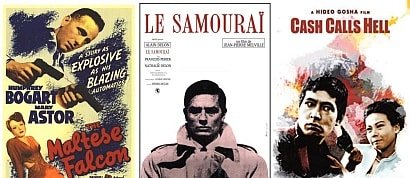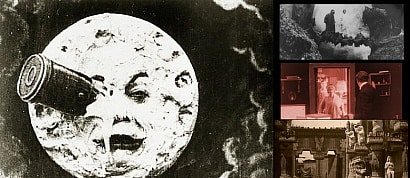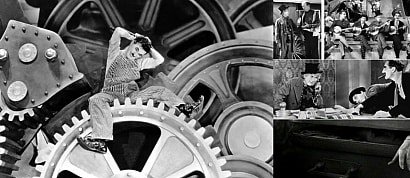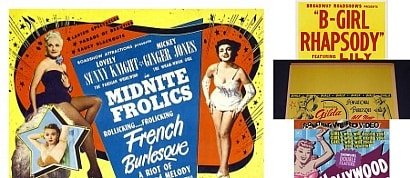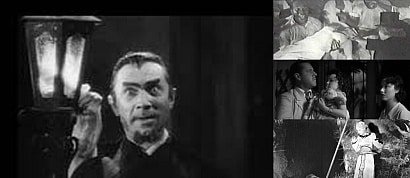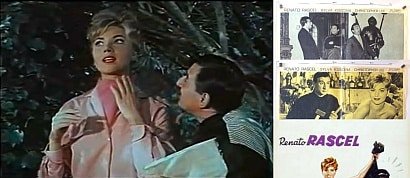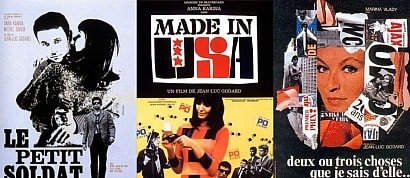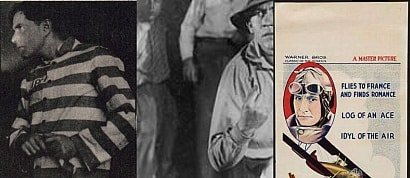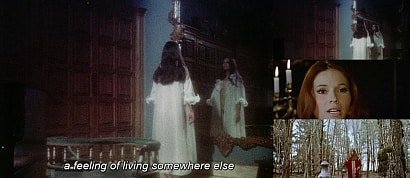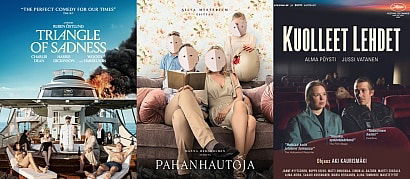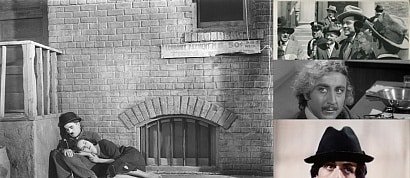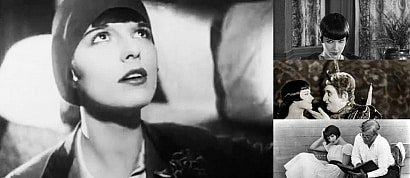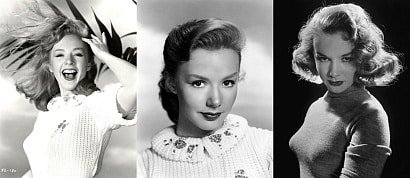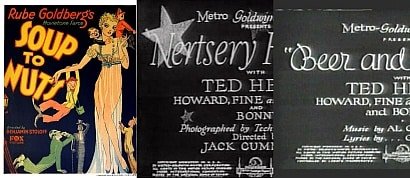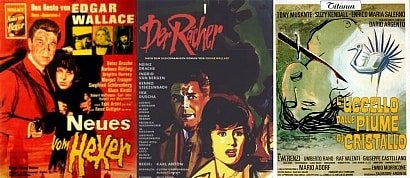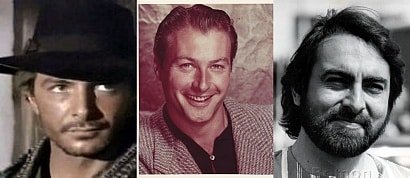Pre-Code Hollywood
Sort by:
Showing 1-50 of 700
Decade:
Rating:
List Type:
 Add items to section
Add items to section
1929
Load more items (650 more in this list)
Pre-Code Hollywood refers to the era in the American film industry between the introduction of sound in the late 1920s and the enforcement of the Hays Code censorship guidelines, which went into effect on July 1, 1934. Until that date, movie content was restricted more by local laws and public opinion than adherence to the United States Motion Picture Production Code of 1930, which generally was ignored by Hollywood filmmakers.
The Production Code enumerated three general principles as follows:
1. No picture shall be produced that will lower the moral standards of those who see it. Hence the sympathy of the audience should never be thrown to the side of crime, wrongdoing, evil or sin.
2. Correct standards of life, subject only to the requirements of drama and entertainment, shall be presented.
3. Law, natural or human, shall not be ridiculed, nor shall sympathy be created for its violation.
Specific restrictions were spelled out as particular applications of these principles:
* Nakedness and suggestive dances were prohibited.
* The ridicule of religion was forbidden, and ministers of religion were not to be represented as comic characters or villains.
* The depiction of illegal drug use was forbidden, as well as the use of liquor, when not required by the plot or for proper characterization.
* Methods of crime (e.g. safe-cracking, arson, smuggling) were not to be explicitly presented.
* References to alleged sex perversion (such as homosexuality) and venereal disease were forbidden, as were depictions of childbirth.
* The language section banned various words and phrases that were considered to be offensive.
* Murder scenes had to be filmed in a way that would discourage imitations in real life, and brutal killings could not be shown in detail. Revenge in modern times was not to be justified.
* The sanctity of marriage and the home had to be upheld. Pictures shall not imply that low forms of sex relationship are the accepted or common thing. Adultery and illicit sex, although recognized as sometimes necessary to the plot, could not be explicit or justified and were not supposed to be presented as an attractive option.
* Portrayals of miscegenation (inter-racial marriage and procreation) were forbidden.
* Scenes of passion were not to be introduced when not essential to the plot. Excessive and lustful kissing was to be avoided, along with any other treatment that might stimulate the lower and baser element.
* The flag of the United States was to be treated respectfully, and the people and history of other nations were to be presented fairly.
* The treatment of vulgarity, defined as "low, disgusting, unpleasant, though not necessarily evil, subjects" must be "subject to the dictates of good taste." Capital punishment, "third-degree methods", cruelty to children or animals, prostitution and surgical operations were to be handled with similar sensitivity.
THE ABOVE INFORMATION IS FROM WIKIPEDIA
The Production Code enumerated three general principles as follows:
1. No picture shall be produced that will lower the moral standards of those who see it. Hence the sympathy of the audience should never be thrown to the side of crime, wrongdoing, evil or sin.
2. Correct standards of life, subject only to the requirements of drama and entertainment, shall be presented.
3. Law, natural or human, shall not be ridiculed, nor shall sympathy be created for its violation.
Specific restrictions were spelled out as particular applications of these principles:
* Nakedness and suggestive dances were prohibited.
* The ridicule of religion was forbidden, and ministers of religion were not to be represented as comic characters or villains.
* The depiction of illegal drug use was forbidden, as well as the use of liquor, when not required by the plot or for proper characterization.
* Methods of crime (e.g. safe-cracking, arson, smuggling) were not to be explicitly presented.
* References to alleged sex perversion (such as homosexuality) and venereal disease were forbidden, as were depictions of childbirth.
* The language section banned various words and phrases that were considered to be offensive.
* Murder scenes had to be filmed in a way that would discourage imitations in real life, and brutal killings could not be shown in detail. Revenge in modern times was not to be justified.
* The sanctity of marriage and the home had to be upheld. Pictures shall not imply that low forms of sex relationship are the accepted or common thing. Adultery and illicit sex, although recognized as sometimes necessary to the plot, could not be explicit or justified and were not supposed to be presented as an attractive option.
* Portrayals of miscegenation (inter-racial marriage and procreation) were forbidden.
* Scenes of passion were not to be introduced when not essential to the plot. Excessive and lustful kissing was to be avoided, along with any other treatment that might stimulate the lower and baser element.
* The flag of the United States was to be treated respectfully, and the people and history of other nations were to be presented fairly.
* The treatment of vulgarity, defined as "low, disgusting, unpleasant, though not necessarily evil, subjects" must be "subject to the dictates of good taste." Capital punishment, "third-degree methods", cruelty to children or animals, prostitution and surgical operations were to be handled with similar sensitivity.
THE ABOVE INFORMATION IS FROM WIKIPEDIA
Added to
22 votes
To Watch II - Film Lists
(152 lists)list by PulpRoman
Published 6 years, 3 months ago  2 comments
2 comments
 2 comments
2 commentsPeople who voted for this also voted for
Films Condemned by the Legion of Decency
Peste Noire
Visually Exceptional Films, B&W 4:3
20 From 30: My Favorite Movies Of The 1930's
Lillian Hunt's Burlesque Movies and Comedies
Gris Gris - Voodoo themed films
1950s/1960s Italian Mystery/Fantasy Comedies
The Idiot's Guide To Famous (Classic) Filmmakers
Lost films
Dreamy films
My Favorite Movies of the 2020s
Actor and Screenwriter (Same Movie)
Celluloid Crushes
Legendary Actresses: Piper Laurie
One Word Essays
More lists from Gauntlet
 Login
Login
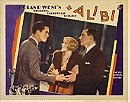
 16
16
 6.4
6.4
 5.7
5.7

